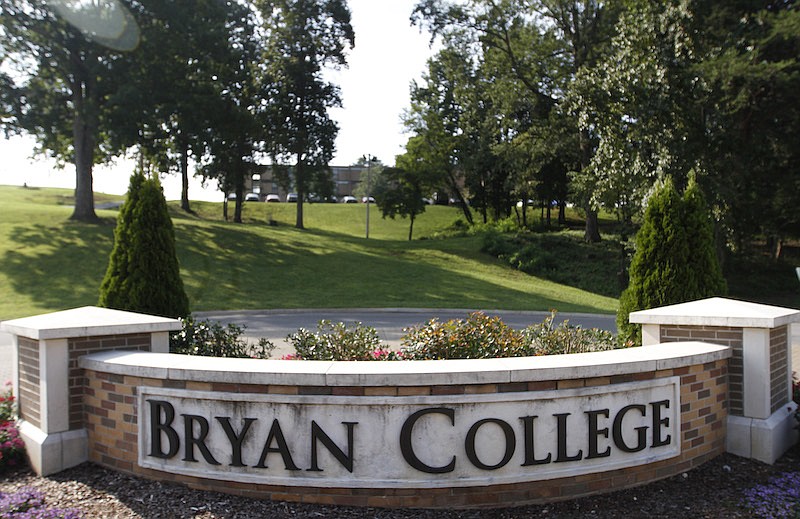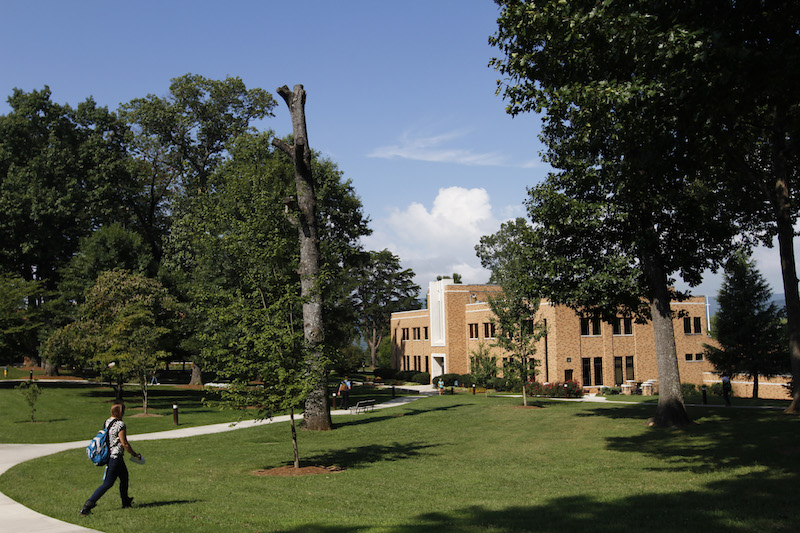Bryan College, located in Dayton, Tennessee, is one of just two educator preparation providers in the state that do not meet the state board of education's expectations for the quality of the programs preparing future teachers and school leaders.
Of the 39 programs, made up mostly college and university education departments, Bryan College and South College in Knoxville were the only two cited as not meeting expectations under the state board's new way of rating programs, according to the annual Educator Preparation Report Card released Friday.
The other programs in the Chattanooga region - Lee University, Tennessee Wesleyan and the University of Tennessee at Chattanooga - were among the majority of providers that met expectations on this year's report card. Southern Adventist University in Collegedale did not receive a rating because of a lack of data.
The report card, which was redesigned in 2016, previously rated programs on a scale of 1-4, with four being the highest potential score, but after receiving feedback from potential students and teacher candidates, the state board changed how it classified programs this year.
"We spoke with current teacher candidates at several institutions across the state about what information would have helped them in deciding on which program to attend, and we used their feedback to drive an enhancement of our Educator Preparation Report Card website," said Amy Owen, director of policy and research at the state board, in a statement. "These enhancements make the report card easier to use for individuals who want to become a teacher, whether that's a high school student making a college decision or an adult looking to change careers."
Bryan College graduated only 57 potential teachers between 2015-2018 and, like most programs across the state, struggled with attracting diverse candidates, such as students of color, or providing training in high-demand areas such as special education, English as a Second Language and secondary math and sciences.
Only 58.7% of "completers," or future teachers that graduated from Bryan during the three-year time frame, were employed in a Tennessee public school the first year after graduation, but 80% of those were still teaching into their third year.
Across the state, about 77.2% of teacher candidates get a job in a public school within the first year after graduation, and about 83% of those are still teaching in year three.
Overall, Bryan did not meet expectations in any of the three areas the report card considers: the quality of teacher candidates, employment and their graduates' impact in the classroom.
About 95% of teacher candidates receive at least a Level 3, which is considered the baseline for effectiveness, on their classroom evaluations, and 59.5% received at least a Level 3 based on their students' Tennessee Value-Added Assessment System (TVASS) scores.
"We know this process assists in promoting improvement in education licensure; however, our primary concern remains in preparing our students as they become future educators. We will continue to work with the state in meeting their standards; but more importantly, meeting the needs for students and the future leaders who will educate them," read a statement from Bryan College officials Friday.
Since the Tennessee Department of Education's site visit in October, the school's education department has reviewed and evaluated its entire curriculum, coursework and assessment and has "identified areas that need to be refined and enhanced," according to the statement.
"The education department has also implemented a state approved improvement plan specifically targeting graduate impact. The plan includes realignment of multiple evaluations to the state approved TEAM model with the anticipation it will assist in better preparation of graduates for the expectations of public school administrators," the Bryan statement read.
But state board officials are celebrating the overall conclusions from this year's report card, despite the nearly 13% drop in the number of teachers actually graduating since 2017.
"Our latest report card shows us that more educator preparation programs are meeting or even exceeding expectations in their work to prepare our state's future teachers," said Dr. Sara Morrison, executive director of the state board of education, in a statement. "As we continue our partnership with program providers, we look forward to continuing to raise the bar on how we define successful educator preparation in Tennessee."
For the 2018-19 school year, nine providers including Carson-Newman University, East Tennessee State University, Lipscomb University, the Memphis Teacher Residency, Milligan College, Teach for America Nashville-Chattanooga, Union University, the University of Memphis, and the University of Tennessee-Knoxville received the highest performance category of "exceeds expectations" on the report card.
But even many of those programs saw a drop in graduates. The number of "completers," or teacher candidates, dropped from 101 in 2017 to 83 in 2018 at Carson-Newman University and from 182 in 2016 to 149 in 2018 at the University of Tennessee.
Locally, UTC saw a 12.5% drop from 168 graduates in 2016 to 147 in 2018. After a 16% increase from 2016 to 2018, Lee graduates dropped from 159 in 2017 to 145 in 2018.
Across the state, nearly 500 fewer future teachers graduated from a teacher preparation program in 2018 than the year before - 3,504 total graduated in 2017 and only 3,063 graduated in 2018.
But state board officials said despite fewer candidates earning their teaching licenses each year, they do see an increase in the quality of the teacher preparation programs and the candidates themselves.
"Candidates are coming out well prepared and their districts want to retain them," Owen said during a media call Thursday.
Locally, Lee University met expectations in all three areas measured. Tennessee Wesleyan University met expectations in two of three, but did not meet expectations under employment due to its graduates' second and third-year retention rates. UTC did not meet expectations in regard to its teacher candidates, despite 99.2% of graduates scoring highly on qualifying tests including the SAT, ACT and Praxis licensing tests. Only about 4.9% of UTC's graduates are considered racially diverse, compared to the 15.6% state average.
Contact Meghan Mangrum at mmangrum@timesfreepress.com or 423-757-6592. Follow her on Twitter @memangrum.
LOCAL PROGRAM RESULTS
Bryan College— Overall: Does not meet expectations— Candidate Profile: Does not meet expectations— Employment: Exceeds expectations— Provider Impact: Does not meet expectationsLee University— Overall: Meets expectations— Candidate Profile: Meets expectations— Employment: Meets expectations— Provider Impact: Meets expectationsSouthern Adventist University— Overall: N/A— Candidate Profile: Meets expectations— Employment: Data not available— Provider Impact: Does not meet expectationsTennessee Wesleyan University— Overall: Meets expectations— Candidate Profile: Meets expectations— Employment: Does not meet expectations— Provider Impact: Meets expectationsUniversity of Tennessee at Chattanooga— Overall: Meets expectations— Candidate Profile: Does not meet expectations— Employment: Meets expectations— Provider Impact: Meets expectations

